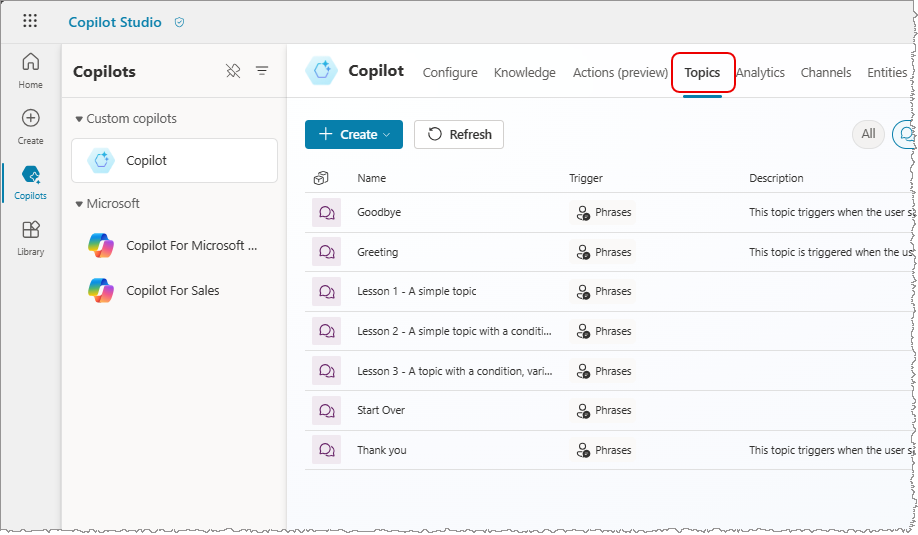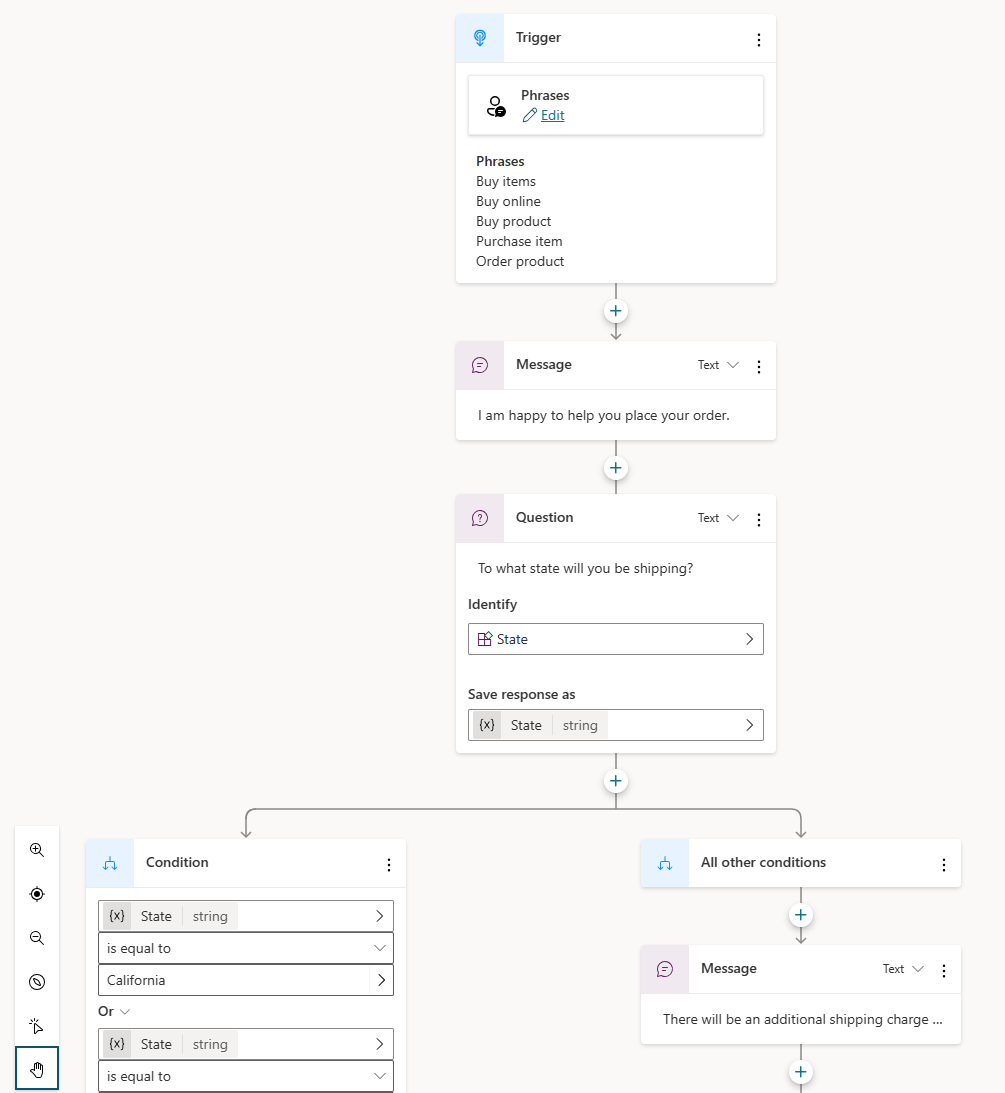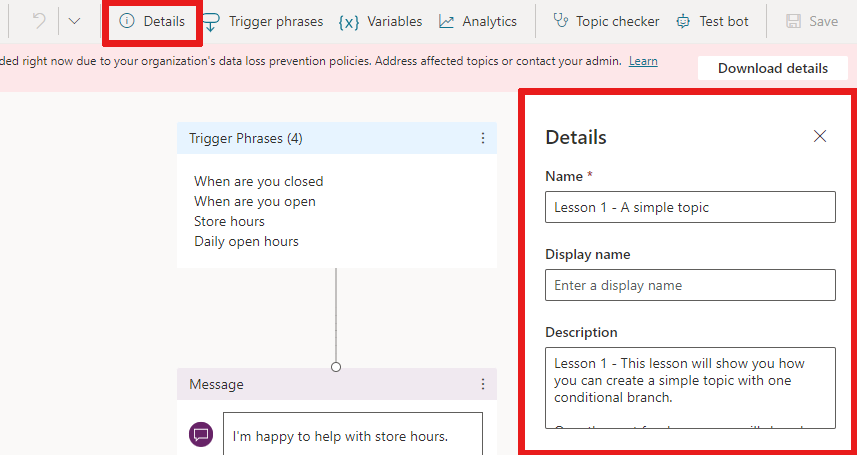Use lesson topics
Copilot Studio includes sample topics with every new copilot. These samples range from simple to complex scenarios that use conditional branching, variables, and custom entities.
The topics are functional but aren't designed for production use. These examples help you learn how to create content for your copilots.
Prerequisites
- An existing copilot, or if you need to create one, see Quickstart: Create and deploy a copilot.
- If you're using a bot that has classic added to the name, you can upgrade your bot to see the latest versions of the sample topics. All bots made in the Teams app are classic bots.
Use sample topics to understand how topics work
Open your copilot, or create one, and go to the Configure page.
Review the copilot's details for name and description. The copilot derives topic phrases from the description (if any).
Select Topics at the top of the page to view the copilot's conversation flow.

Select each topic from the list to open it. In this case, trigger phrases were added manually to the Trigger node.
The flow includes the copilot's comments, expected user responses, decision points, and entity references used in each topic. This sample flow is for Lesson 3.
Available sample topics
Each sample lesson topic is designed to teach you how to create basic and advanced copilot conversations. We recommend that you start with Lesson 1 and work through each topic in order.
Lesson 1 - A simple topic
This sample template is a topic that responds to a question about store hours.
Lesson 2 - A simple topic with a condition and a variable
This sample shows you how to create a question that asks customers which store they're interested in and keeps the response in a variable. The condition uses the variable to determine which store's hours to return.
Lesson 3 - A topic with a condition, variables, and a prebuilt entity
This sample asks customers to enter a shipping state. The copilot uses the prebuilt State entity to recognize the US state in the user's response, and stores it in the State variable.
A condition uses the State variable to determine which shipping message to send to the user. Another condition uses the customer's response to a multiple-choice question, stored in the variable Item, to determine which product to order.


